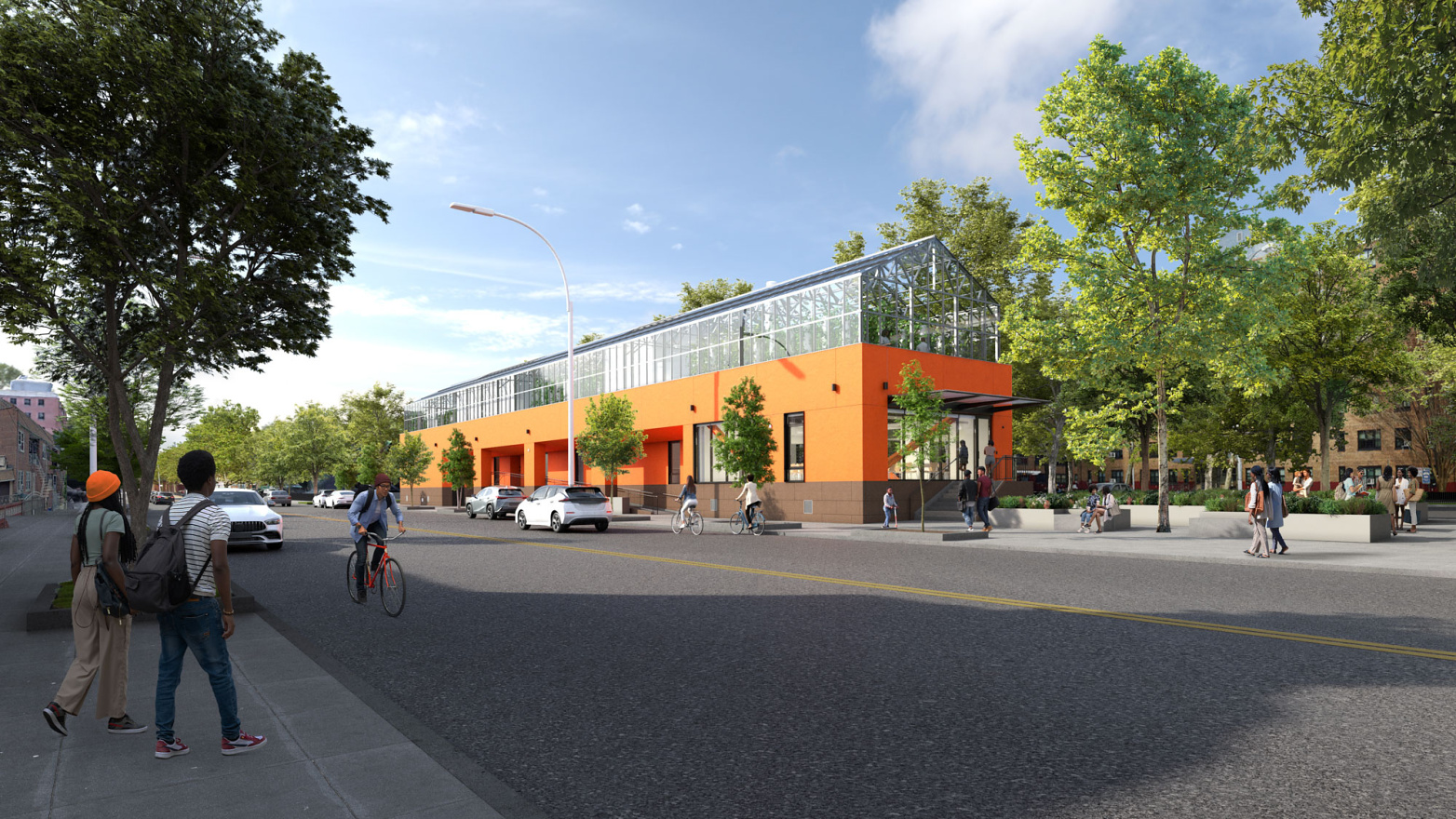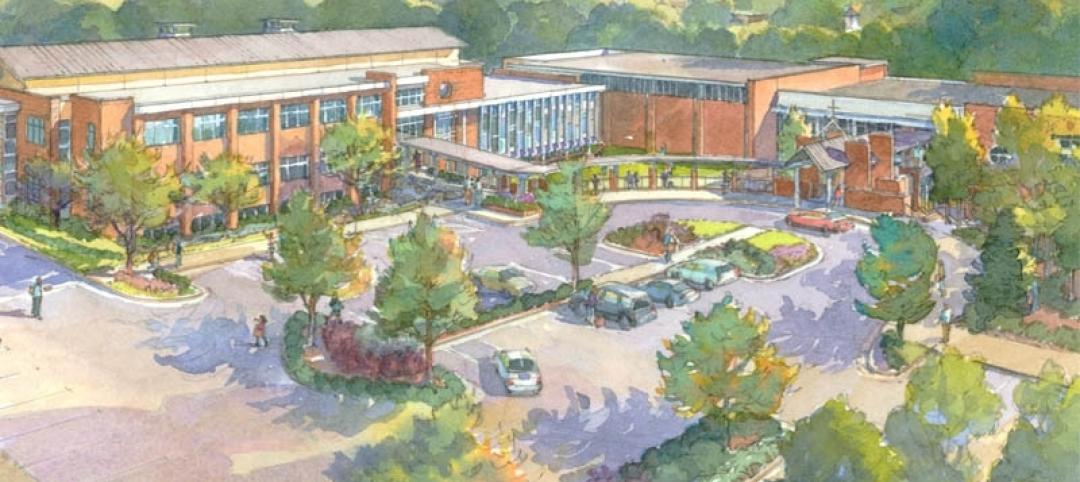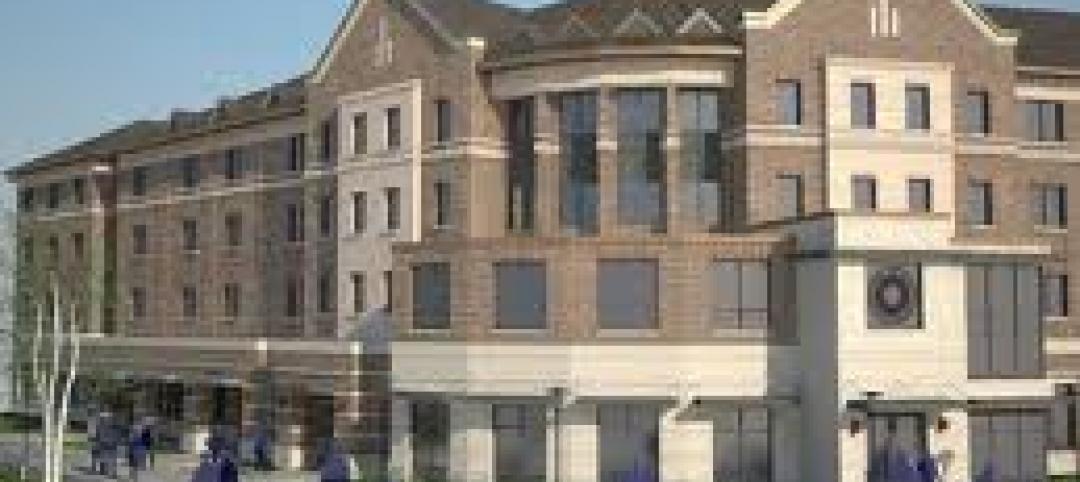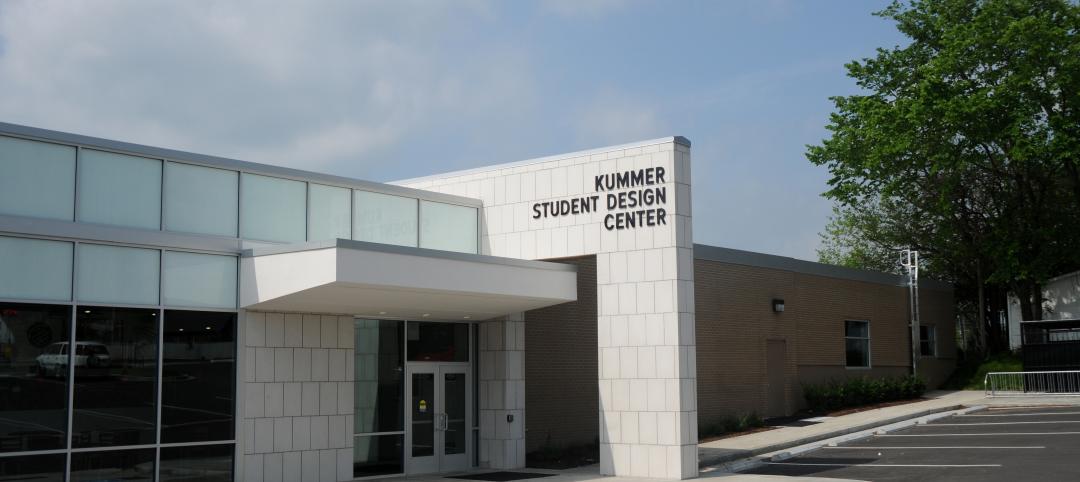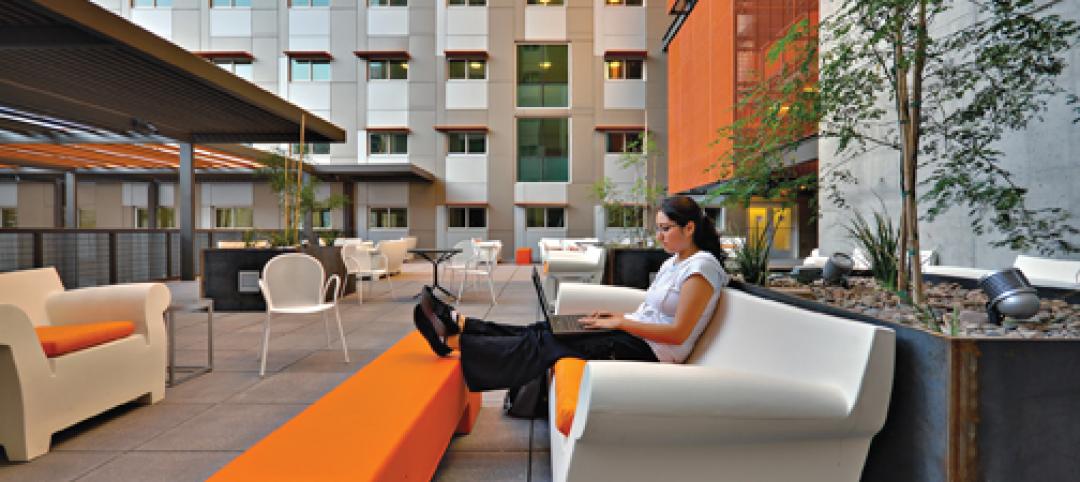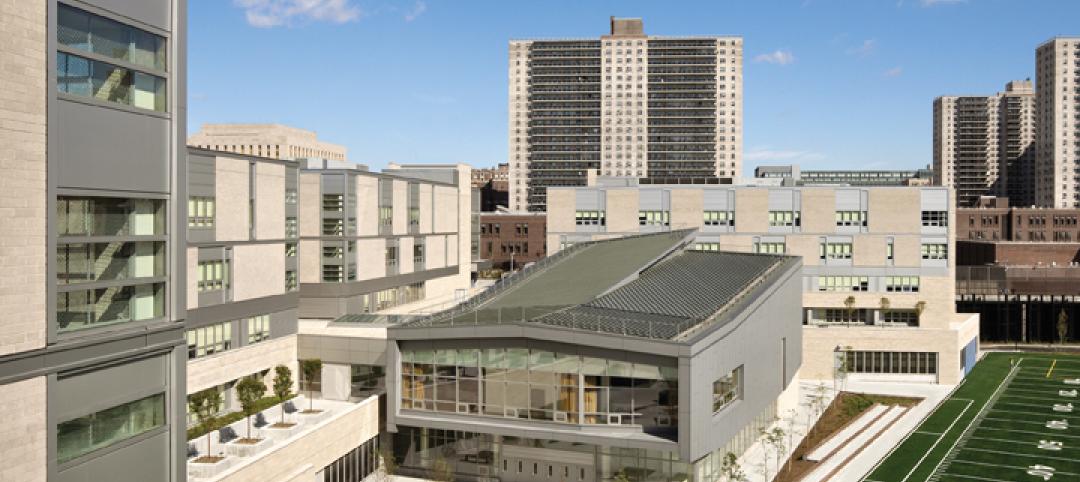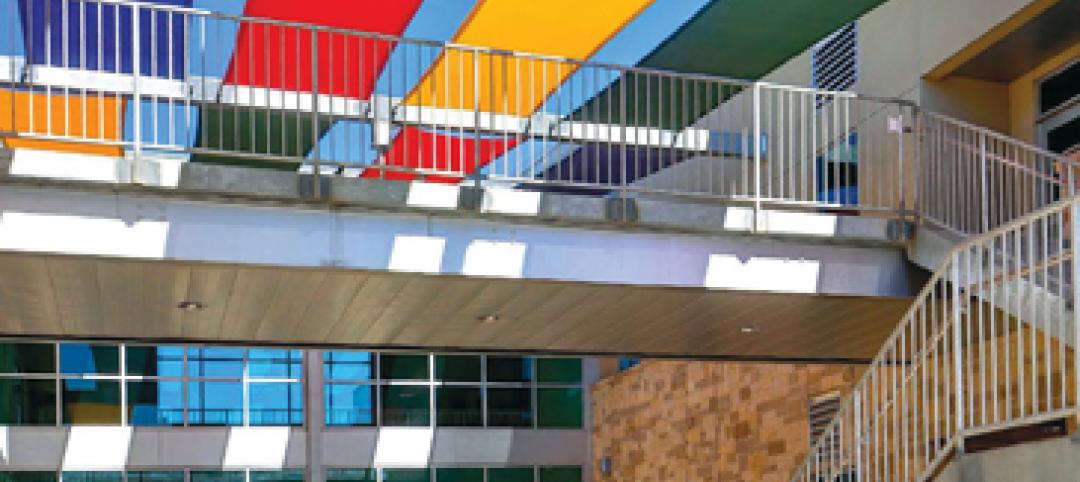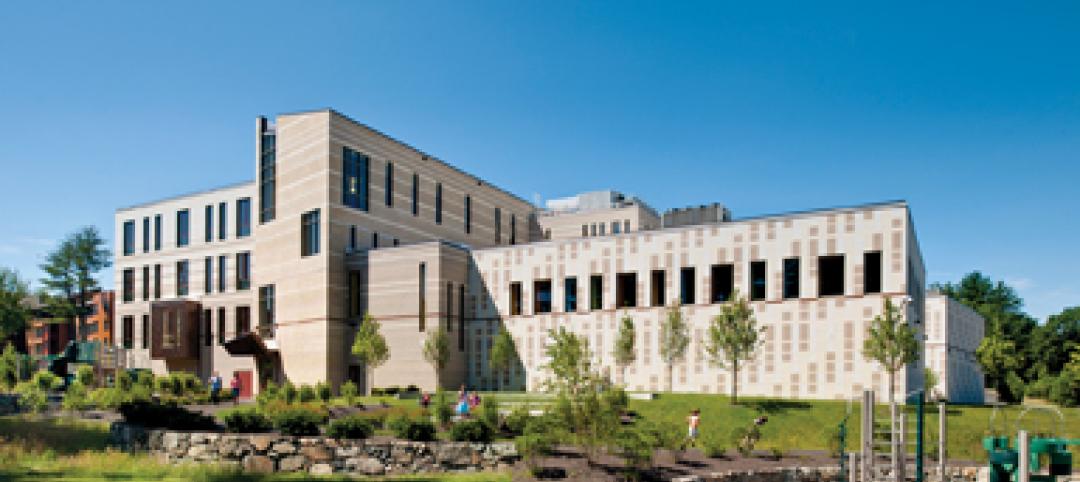Earlier this month, the City of New York broke ground on the new $18.2 million Marlboro Agricultural Education Center (MAEC) at the New York City Housing Authority’s Marlboro Houses in Brooklyn.
In line with the mission of its nonprofit operator, The Campaign Against Hunger, MAEC aims to strengthen food autonomy and security in underserved neighborhoods. MAEC will provide Marlboro Houses with diverse, community-oriented programs.
Designed by the Studio Gang and built by Consigli Construction Co., the 9,900-sf center will feature a rooftop greenhouse for raising plants and fish. The second-floor greenhouse will serve as a learning lab for schoolchildren and visitors and will help young adults engage with local, sustainable food production. On the ground floor, flexible teaching and community spaces will offer cooking and nutrition classes, among other programs. In the winter, MAEC will host an indoor market.
The building’s large windows and generous sidewalk frontage aim to strengthen connections with the surrounding neighborhood. Entrances on multiple sides create physical and visual connections to the street and surrounding area. A small public terrace and planter garden will encourage visitors to stop by.
Located in a coastal flood zone, the building will be elevated, which also will create opportunities for street furniture. The sustainable design includes passive heating and cooling, solar access, all-electric systems, and rainwater storage and reuse. The project, which targets LEED Gold certification, will use materials with minimal maintenance for a lifecycle of over 60 years.
The MAEC project leverages a design-build project delivery method to remove lengthy contracting from the traditional delivery method that historically has been used for city capital projects, according to the City of New York’s press release. The design-build method also will shorten timelines and increase participation by minority- and women-owned businesses.
On the Building Team:
Project operator: The Campaign Against Hunger
Design architect: Studio Gang
Design-build contractor: Consigli Construction Co.
Landscape architect: Eponymous Practice
Structural engineer: Thornton Tomasetti
Civil engineer: Philip Habib & Associates
Geotechnical engineer: Langan
MEPFP: BALA Consulting Engineers
Greenhouse enclosure design: Prospiant
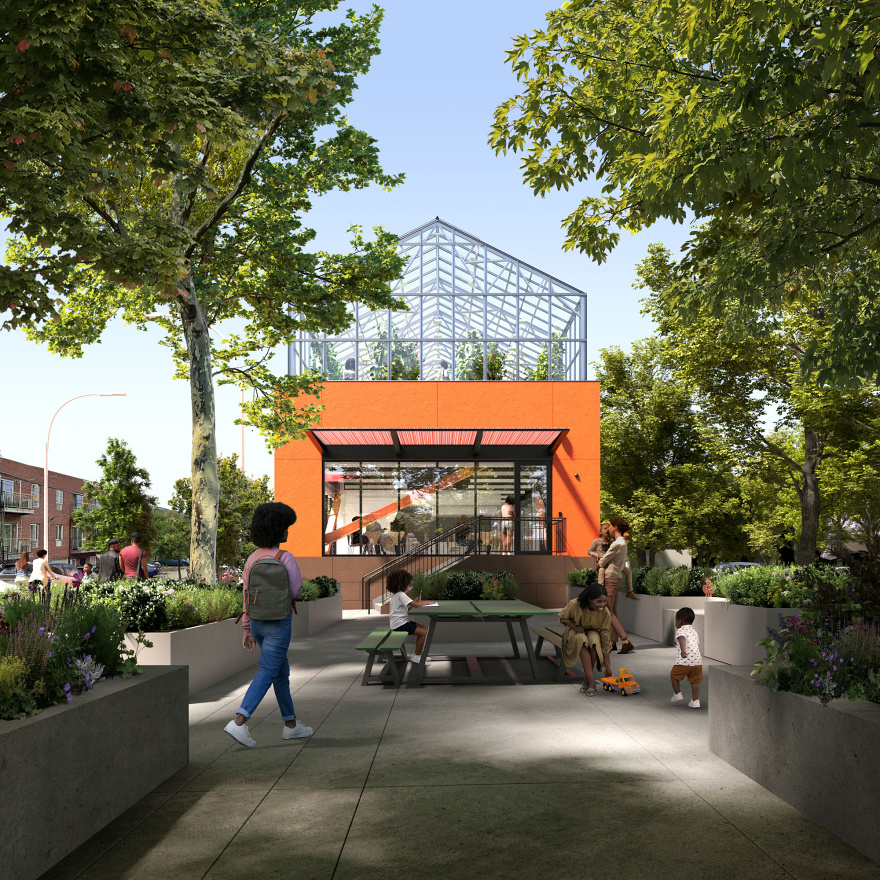
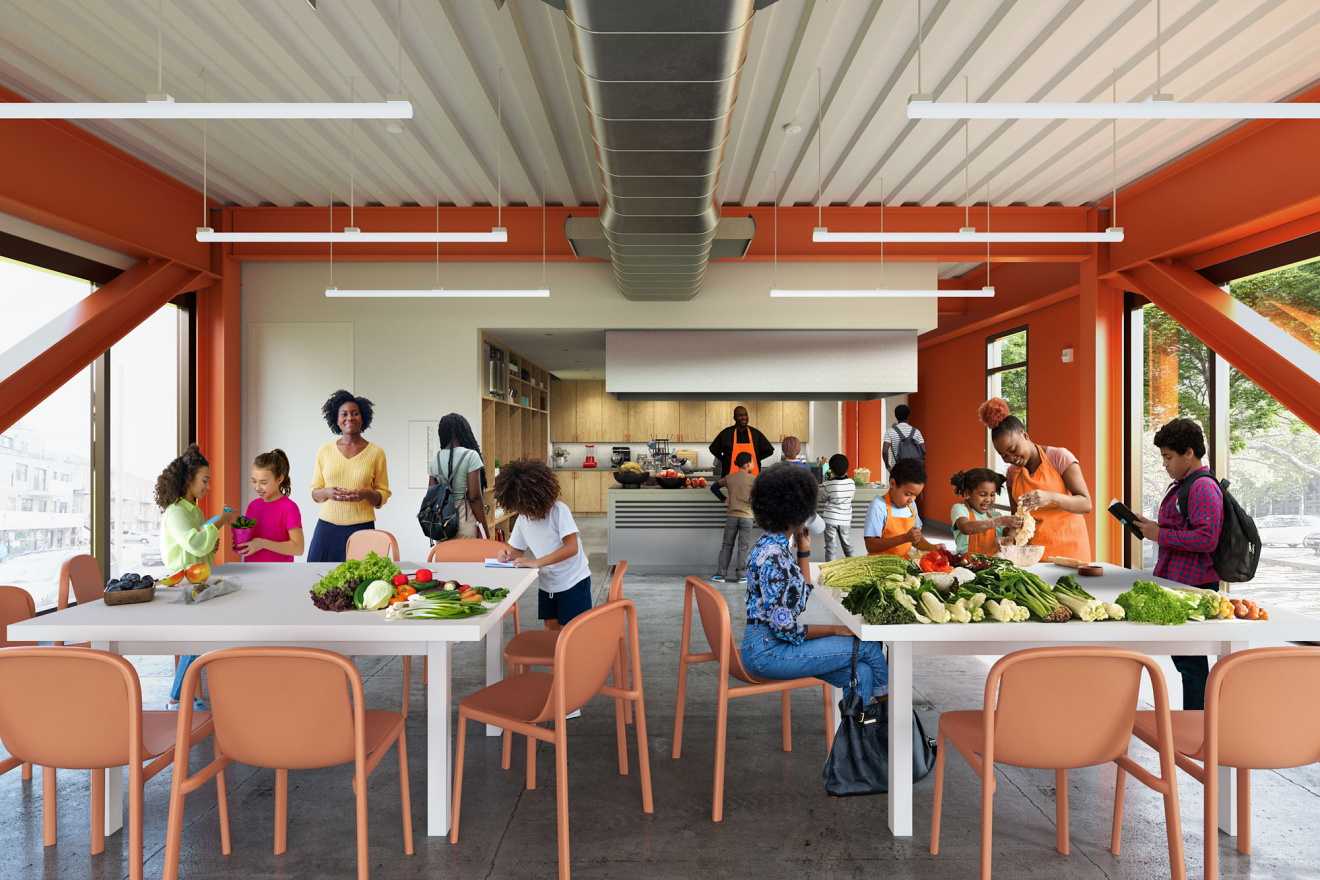
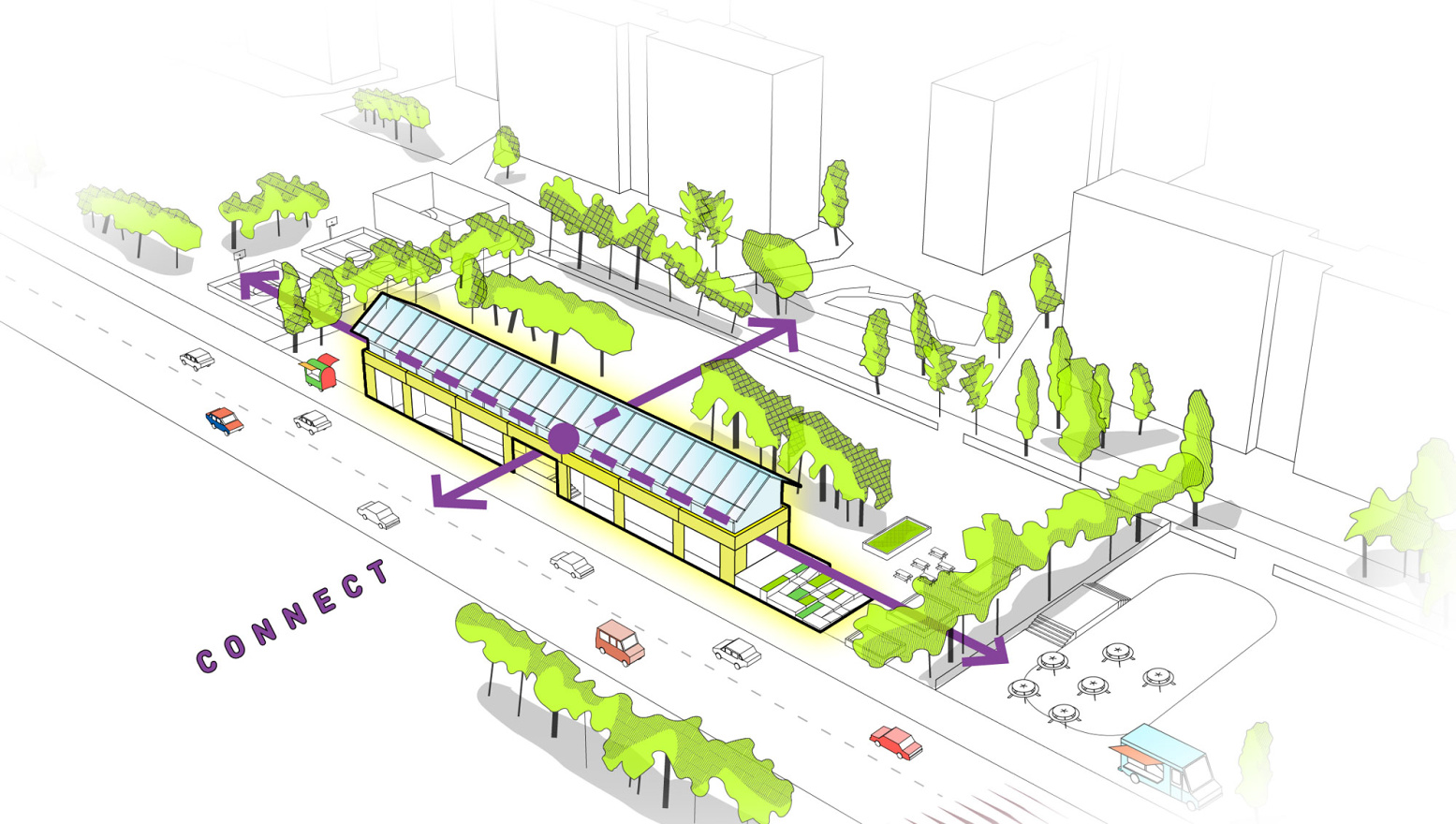
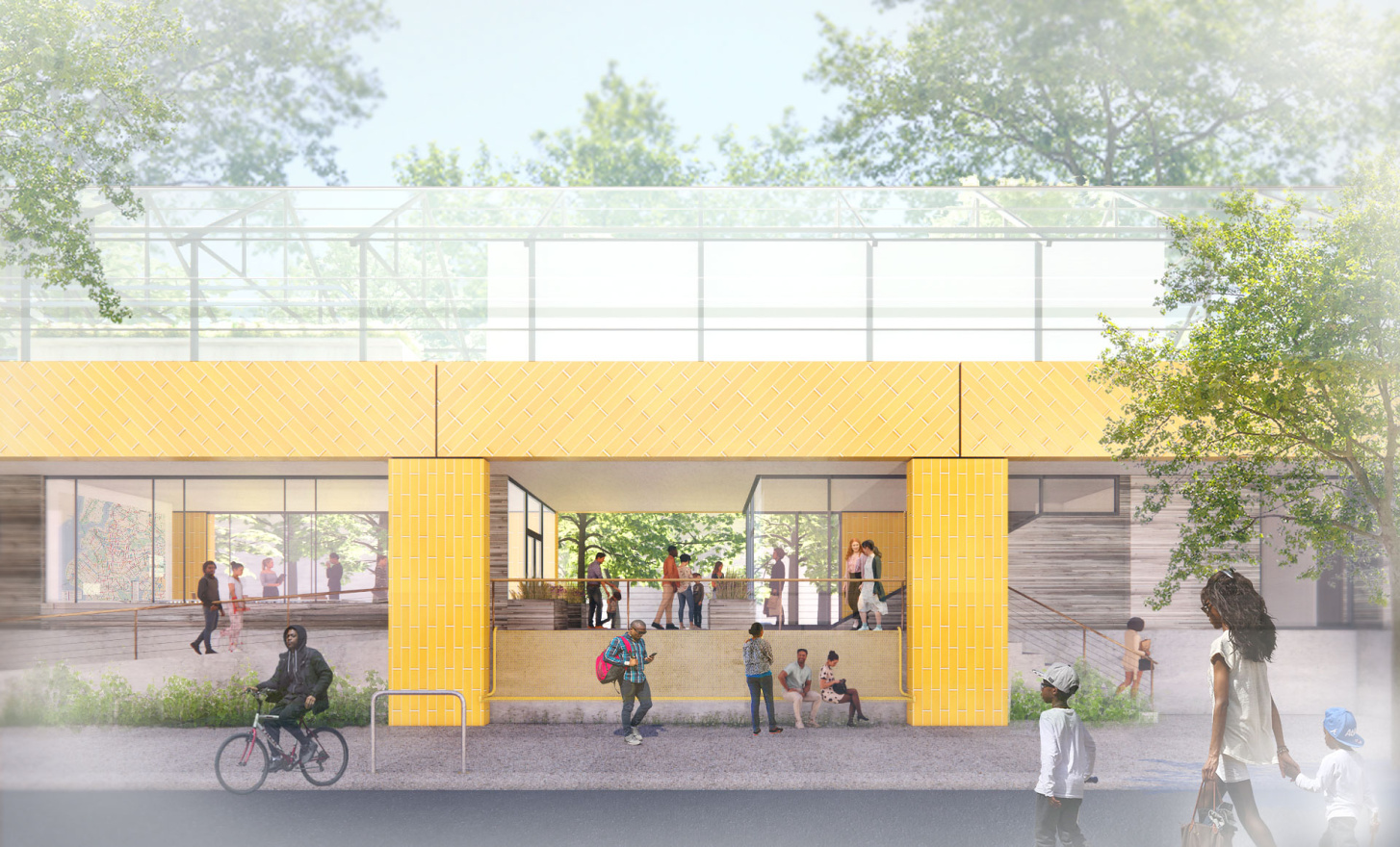
Related Stories
| Oct 18, 2011
St. Martin’s Episcopal School expands facilities
Evergreen commences construction on environmentally sustainable campus expansion.
| Sep 29, 2011
Busch Engineering, Science and Technology Residence Hall opens to Rutgers students
With a total development cost of $57 million, B.E.S.T. is the first on-campus residence hall constructed by Rutgers since 1994.
| May 18, 2011
Major Trends in University Residence Halls
They’re not ‘dorms’ anymore. Today’s collegiate housing facilities are lively, state-of-the-art, and green—and a growing sector for Building Teams to explore.
| May 18, 2011
Former Bronx railyard redeveloped as shared education campus
Four schools find strength in numbers at the new 2,310-student Mott Haven Campus in New York City. The schools—three high schools and a K-4 elementary school—coexist on the 6.5-acre South Bronx campus, which was once a railyard.
| May 18, 2011
Eco-friendly San Antonio school combines history and sustainability
The 113,000-sf Rolling Meadows Elementary School in San Antonio is the Judson Independent School District’s first sustainable facility, with green features such as vented roofs for rainwater collection and regionally sourced materials.
| May 18, 2011
New Reform Jewish Independent school opens outside Boston
The Rashi School, one of only 17 Reform Jewish independent schools in North American and Israel, opened a new $30 million facility on a 166-acre campus shared with the Hebrew SeniorLife community on the Charles River in Dedham, Mass.
| May 18, 2011
Addition provides new school for pre-K and special-needs kids outside Chicago
Perkins+Will, Chicago, designed the Early Learning Center, a $9 million, 37,000-sf addition to Barrington Middle School in Barrington, Ill., to create an easily accessible and safe learning environment for pre-kindergarten and special-needs students.


